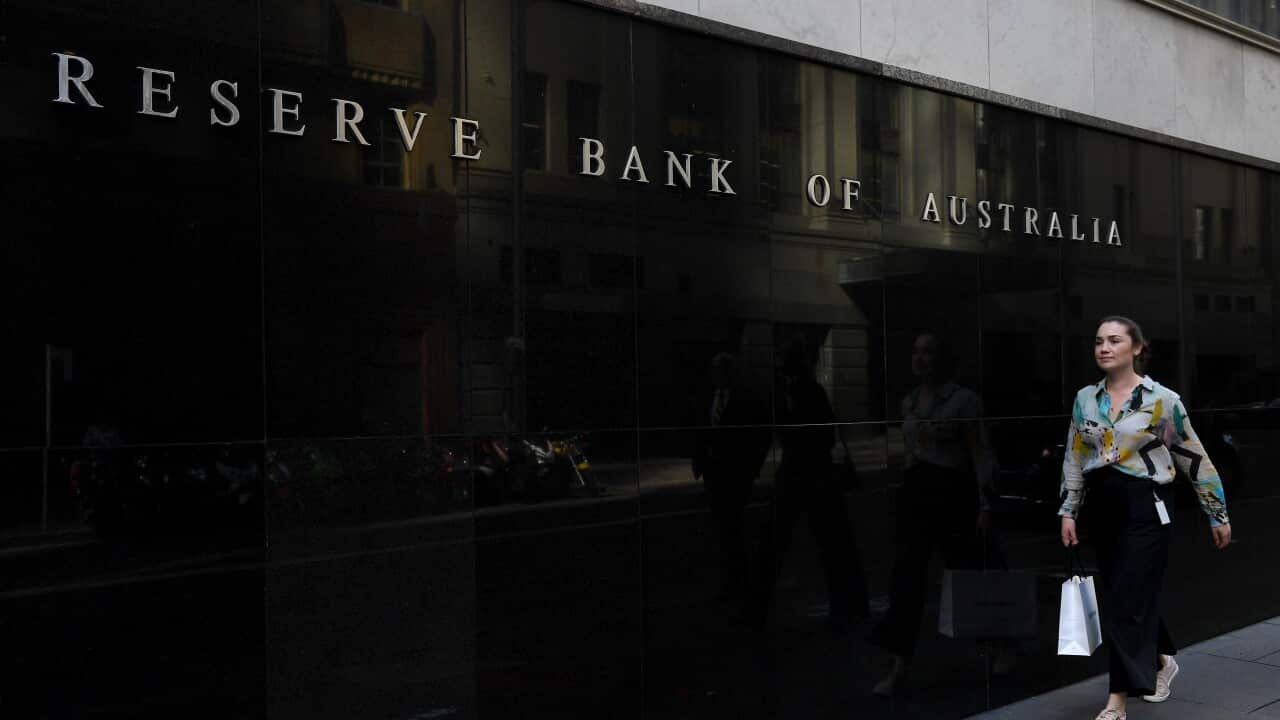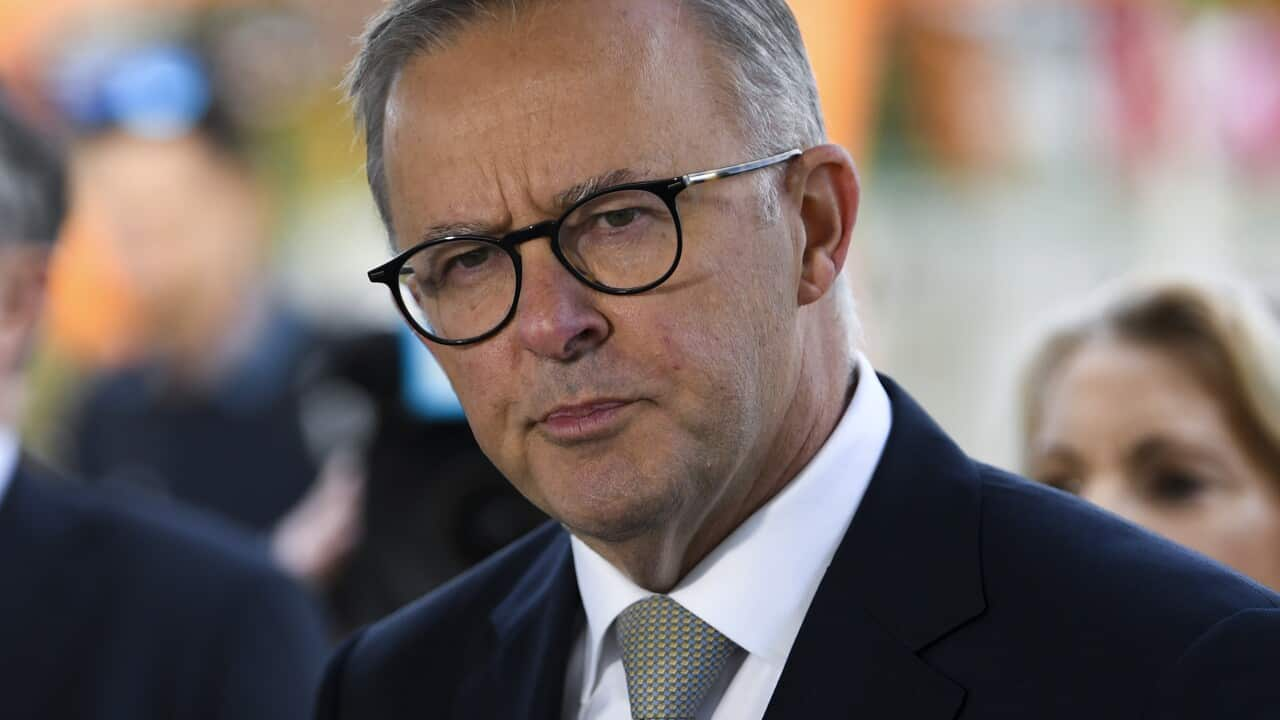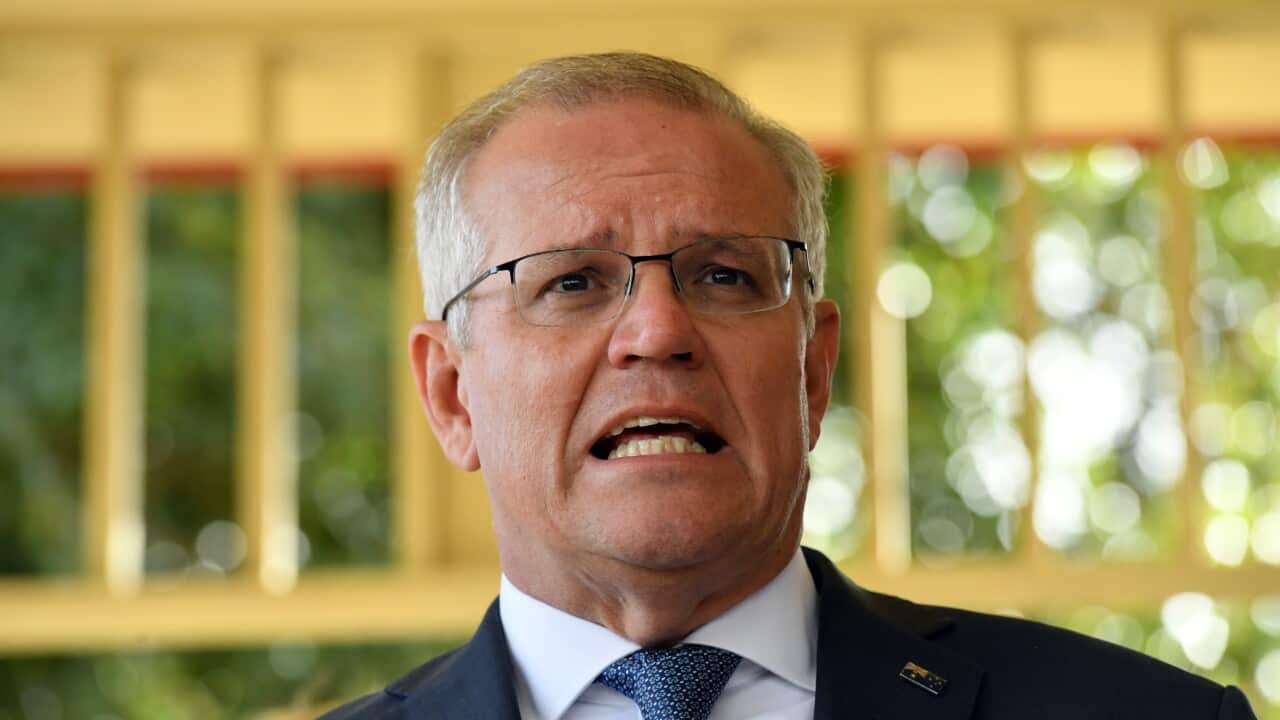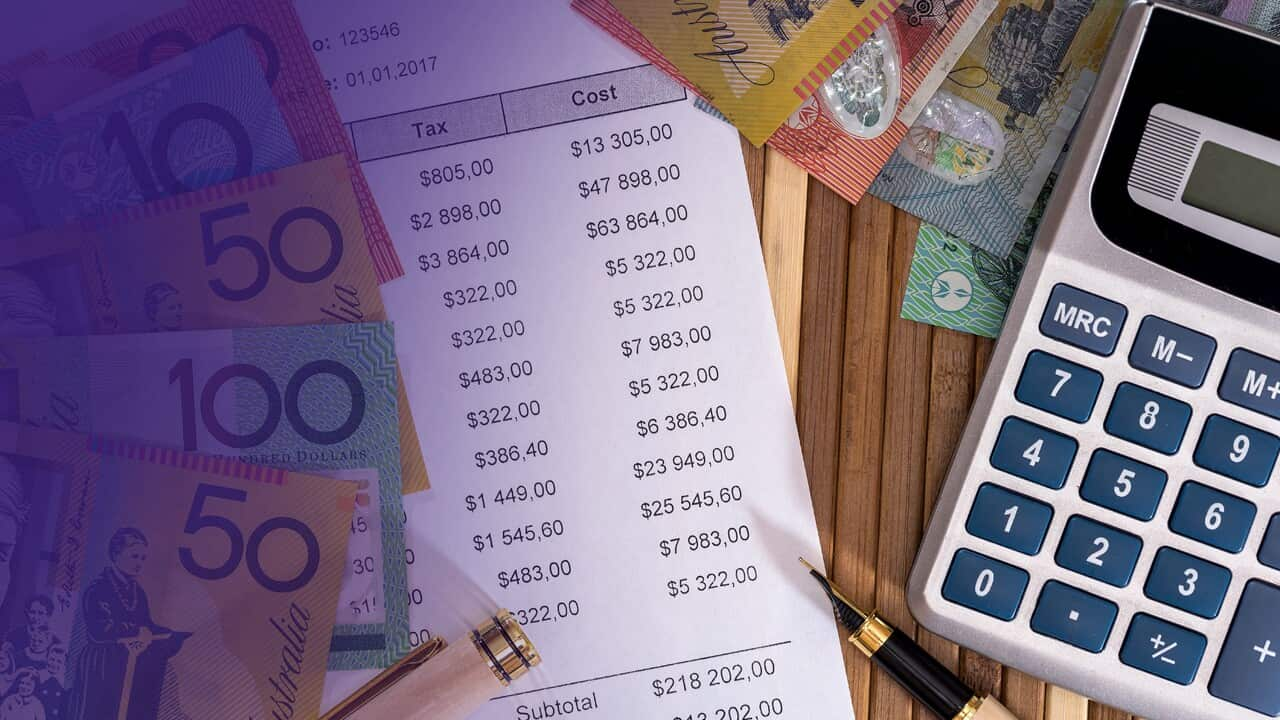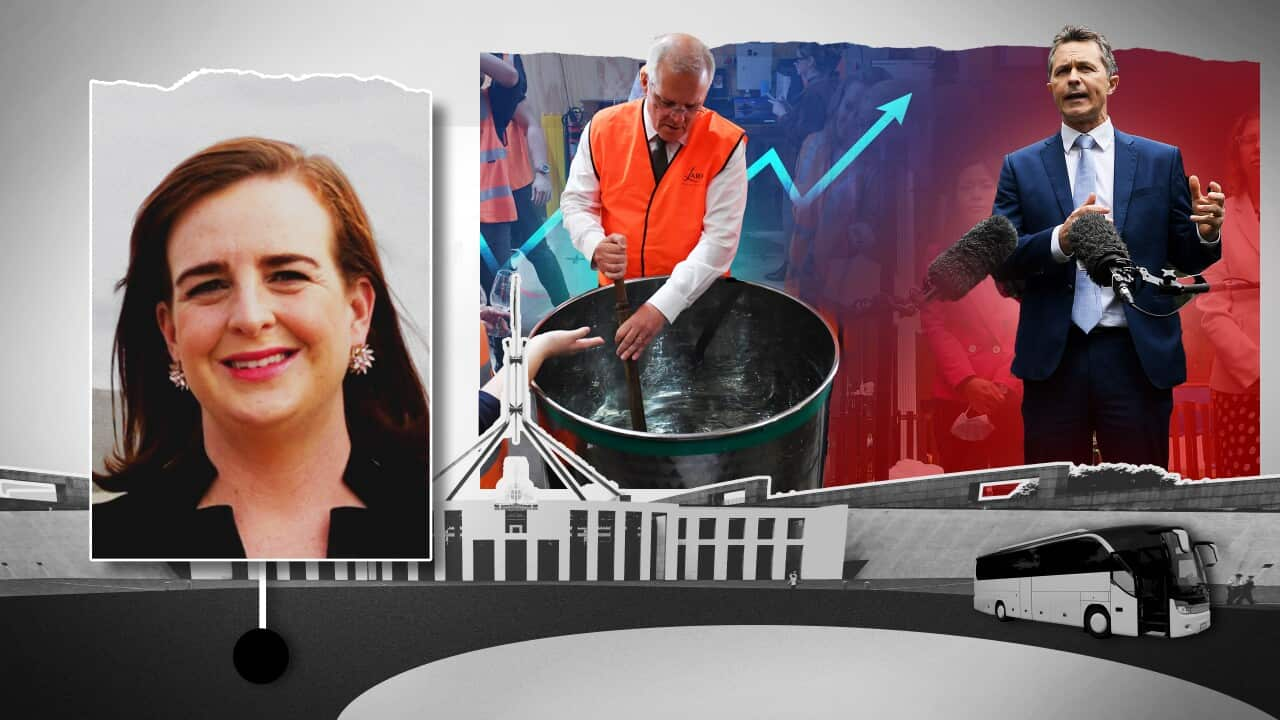Prime Minister Scott Morrison says he sympathises with Australians following the Reserve Bank of Australia's (RBA) decision to raise the official cash rate today, but has defended his government's handling of the economy, saying the nation has come out of the pandemic better than other countries.
The RBA today increased the official interest rate by 25 basis points, raising it from a historic low of 0.1 per cent to 0.35 per cent.
The increase was the first time the RBA has raised the nation's official interest rate during an election campaign since 2007, when at the time, then-prime minister John Howard said he was sorry about the rise.
Speaking to reporters in Melbourne alongside Treasurer Josh Frydenberg, Scott Morrison said he understood the effect the rise in rates would have on mortgage holders.
"Of course I have sympathy with that (rate rise impact) ... and we expressed our concern about that in what we did in this year's budget," the prime minister said.
"I sympathise with Australians as they face high cost of living pressures. I sympathise with Australians when they face higher repayments on their homes."
RBA governor Philip Lowe said there was evidence of wages growth picking up and the economy was proving to be resilient, with inflation rising quicker than expected.
While Tuesday's rate hike was the first in nearly 12 years, Dr Lowe said the interest rates would increase further.
"It's not unreasonable to expect the normalisation of interest rates over the period could see them rise to 2.5 per cent," he said.
"That would be more normal levels. How fast we will get there will be determined by events."
Dr Lowe said the election campaign, now in its fourth week, had no bearing on the Reserve Bank's decision to lift the cash rate, stressing the bank was independent.
"The election had no influence on the decision today, the Reserve Bank was given a mandate by parliament to achieve price stability, full employment and promote the economic welfare of the Australian people," he said.
"We don't take the political situation into account, we do what is right for the country."
Mr Morrison said "now is not the time to turn back", when asked if the rate hike could lose him the election.
He said Australians did not think "extraordinarily" low rates would "go on forever".
"We knew about the rising prices that were coming.
"It has all been about having a strong economic plan that understands the global environment in which we are operating."
Mr Morrison said that his government was in close contact with the Reserve Bank throughout the pandemic, and that their policies "aligned".
"The government's policy was in line with those of the Reserve Bank," he said.
"The response of the Reserve Bank was that they supported what we were doing."
Mr Morrison said that while he was sympathetic with Australians who will now have to pay higher mortgage repayments, Australia's economy has outperformed those of other countries.
"Australia's inflation rate is 5.1 per cent. Eight and a half per cent is what's happening in the United States."
He reiterated his claim that the Coalition is stronger than Labor on economic issues, telling journalists that Opposition leader Anthony Albanese "didn't even know what the cash rate was three weeks ago".
He made the comments despite earlier saying that the rate hike was not "about politics".
Mr Morrison was joined by Mr Frydenberg, who talked about how other countries like the UK and US have also raised their interest rate by as much or more.
Mr Frydenberg denied that the government's cost of living policies leading up to the election have caused inflation to become higher.
Labor says the cost of living crisis happened on Scott Morrison's watch
Labor leader Anthony Albanese said it was hard enough already to make ends meet under Mr Morrison.
"Today it got even harder for millions of Australians," he said.
"Even before today's decision Australians were facing a full-blown costs of living crisis on his watch. Scott Morrison's economic credibility was already in tatters, now it's completely shredded."
Labor treasury spokesperson Jim Chalmers blamed Mr Morrison's handling of the economy for the RBA's increase of the interest rate.
He told the ABC the cost of living crisis in the Australia happened "on Scott Morrison's watch".
"Scott Morrison saying he's not focused on the politics of this [inflation & interest rates] is like Homer Simpson saying he's not focused on the donuts," he said.
"This is a full blown cost of living crisis. There's no point beating around the bush about it."
Mr Chalmers said the "right way" to grow the economy is in a "low inflationary way" and said that while foreign developments were at play, the government's domestic monetary policy was also to blame.
Mr Chalmers addressed wage growth, which he said is at the forefront of the cost of living crisis.
"Wages matter a great deal, inflation matters a great deal, but the real wages calculation matters the most.
"Australians are finding it harder and harder to get by in Scott Morrison's cost of living crisis and they've found it even harder today."
Opposition leader Anthony Albanese acknowledged if elected at the upcoming federal election, he would have to preside over rising interest rates.
But he said the difference was Labor planned to help ease living pressures elsewhere including with childcare and electricity costs, while the Liberal-National coalition did nothing to address stagnant wages or reduce cost of living.
"It's not bad luck, it's bad policy to have low wage growth," Mr Albanese told reporters in Melbourne on Tuesday.
"Government needs to try to lend a hand where it can, [Labor is] putting forward practical measures."
Mr Morrison argued it would be wrong to look at any rate rise through a "political lens".
He said the economic situation was different to 2007 as Australia was now recovering from the COVID-19 pandemic, multiple natural disasters and the impacts of overseas conflict.
"Australians know the pressures that we're facing here in Australia are real and they are overwhelmingly being determined by things beyond Australia," he told reporters in Melbourne on Tuesday.
He said Labor would put upward pressure on interest rates by its over-spending of taxpayers' money.
But Mr Albanese said it was "extraordinary" for the prime minister to claim rising inflation and interest rates had nothing to do with politics.
"Everything that this guy does is political from day to day. It's never about the national interest," he said.
Assistant Treasurer Michael Sukkar said it was "a fact, not opinion" that interest rates had been lower under the Coalition.
Mr Sukkar said there was an expectation that property prices would moderate, following rises during the COVID-19 pandemic.
"A moderation in house price growth is something I have been talking about for months now," he told Sky News.
Business Council of Australia chief executive Jennifer Westacott said the decision underlined global volatility.
"The RBA has drawn a line under two years of emergency pandemic settings, now action is needed to manage the growing cost of living pressures on everyday Australians," she said.
ACTU secretary Sally McManus said house prices had risen six times faster than wages under the Morrison government.
"If Scott Morrison hadn't been completely missing in action on wages, Australian workers paying off a mortgage would have been better prepared for today's interest rate rise," she said.

